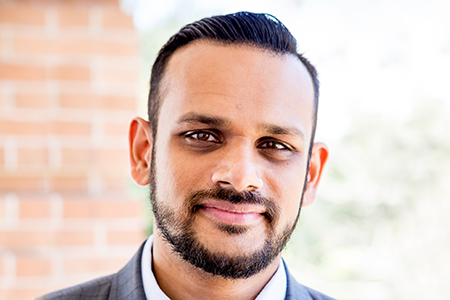 Why do you care about having an international student body on campus?
Why do you care about having an international student body on campus?
"First it's from my own experience. I saw how I changed the classroom dynamic by being someone that brought a very different set of ideas – and the conversations were transformed because you had someone that thought differently. And I think in today's world where the cliche's becoming flatter every day, if you're not preparing students to deal with people from different cultures, you're not preparing them to be successful in the real world. Because the real world today is one where you're not only dealing with people from different cultures, but almost every job requires you to have an understanding of a global economy. And if you don't understand that you need to adapt to different cultures, you're actually going to fail in becoming a global leader. So I think for a campus to prepare students to be successful in the real world, having exposure to students that come from different religions, different countries, different cultures, is sort of a basic requirement."
What have you seen coming from your efforts to develop a more diverse student body?
"It's been both enriching and challenging. Enriching because people are learning about India, China, Africa, people that come from different countries and what it must be like. It's also challenging because students that may have been in their comfort zone now aren't so, simple things that they could have said to a group of people that are just like them, they may have to rethink how they state that. And for someone who is not used to being in a room that is diverse, that can sometimes be challenging – in a good way I believe. So I think we have a richer student body, a more diverse student body that welcomes and is more prepared for a world that is increasingly becoming non-homogenous. So I think that our student body is richer but also challenged in how to deal with this growth in international students.
Bringing the students is the first part, right? How do you integrate them? And that's where people like Kristy and her team are making sure that these students are supported, but that they're also told that – and I say this from my own experience – you don't just limit yourself to people like you. Because if we brought say 10 students from India and all they did was hang out with each other, sure that'd be comfortable, but that's not why they're here. I think they're here so they can integrate. So OISS is doing a great job of integrating these students but also providing a home. Because when you're having a bad day, the person you related to the most is someone that you identify the most with. So having that comfort zone is great. I think it's a really good balance."
